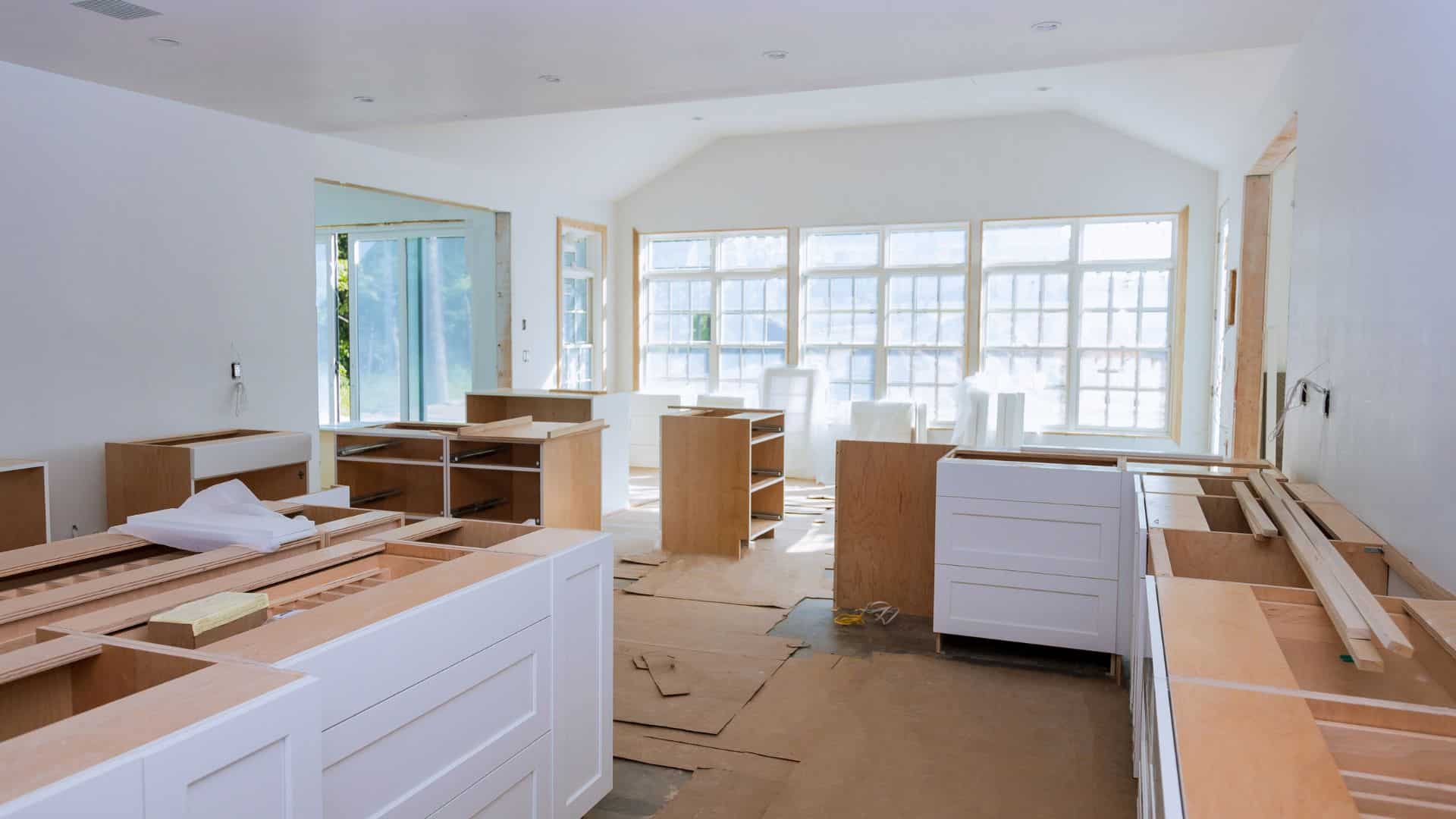When you’re thinking about remodeling your home, a common worry might be whether these upgrades will bump up your property taxes. Indeed, a remodel increase property tax, but how much it goes up really depends on what kind of changes you make and the rules in your local area. For instance, if you add a new room or significantly upgrade your kitchen or bathrooms, your home’s value might increase, leading the tax assessor to possibly raise your taxes. But not all changes will have a big impact—it all depends on how valuable those changes are seen to be by the local authorities.
What Triggers a Property Tax Increase?
Assessment Changes Due to Structural Additions:
- Adding square footage or making substantial alterations to your property can trigger a reassessment. This includes additions like a new bedroom, expanded family room, or converted attic space. Structural changes often result in increased property values, which may lead to higher taxes.
Upgrades and Renovations:
- Major renovations, such as a kitchen remodel or adding a bathroom, can also increase the assessed value of your home. While not all upgrades will impact taxes—like minor cosmetic changes—significant improvements that enhance the home’s value are likely to be factored into your tax assessment.
Local Tax Assessments and Market Conditions:
- The local tax assessor evaluates home improvements to determine if they contribute to the market value of a home. Not all renovations will increase property taxes; it often depends on whether the improvement adds functional or usable space or significantly upgrades the home’s facilities.
Examples of Home Improvements and Their Impact on Taxes
Kitchen Remodel
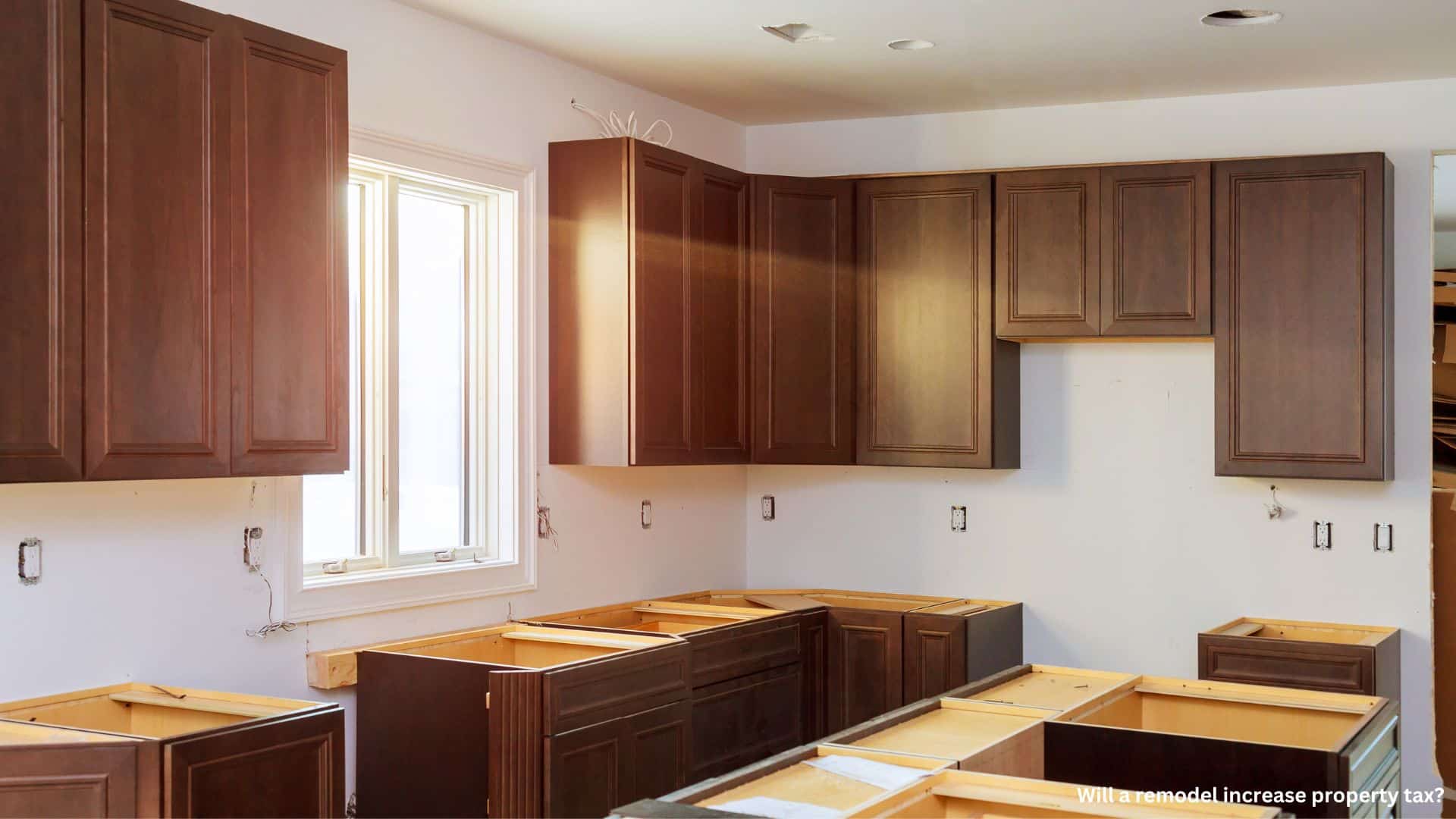
When you upgrade your kitchen with high-end finishes and new appliances, you’re not just enhancing its appearance and functionality—you’re potentially increasing your home’s market value. Such improvements might include installing stone countertops, custom cabinetry, energy-efficient appliances, and designer flooring. These changes can make the kitchen more appealing to potential buyers, thereby raising the overall value of the property. Property assessors take such renovations into account when they reevaluate a home’s market value, which could lead to an increase in property taxes because of the higher assessed value.
Bathroom Remodel
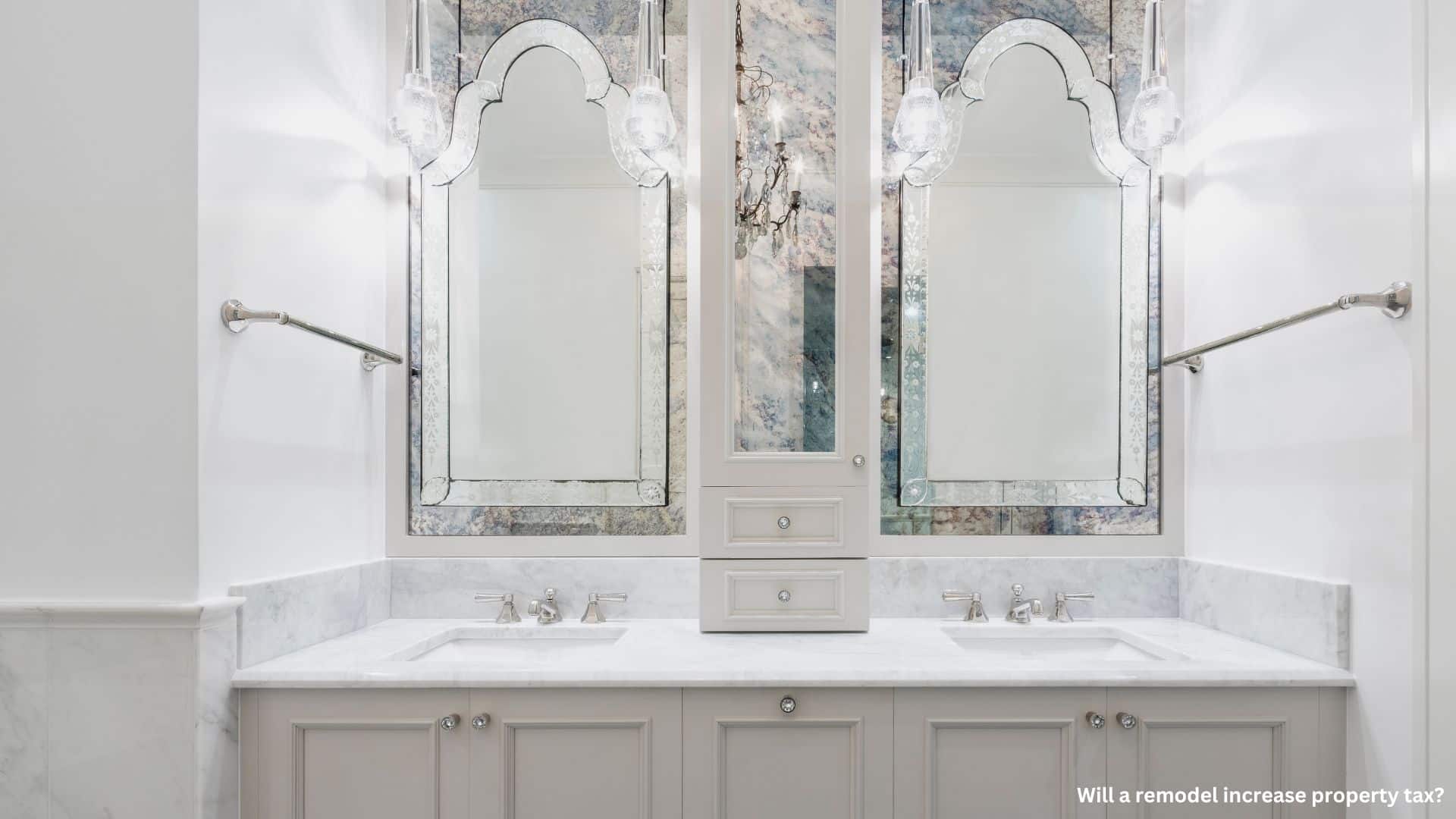
Remodeling your bathroom can increase your home’s value and its appeal, potentially leading to a higher property tax bill. Upgrades like installing a new bathroom can make your home more attractive and functional, especially for larger families or for adding convenience and privacy. Features such as double vanities, spacious walk-in showers, and high-end fixtures can significantly enhance the bathroom’s luxury and utility. When these improvements increase the desirability and functionality of your home, it may catch the attention of tax assessors, who could reassess your home’s value upwards. As a result, a bathroom remodel can increase property tax due to the increased assessed value of your property.
Basement Conversion
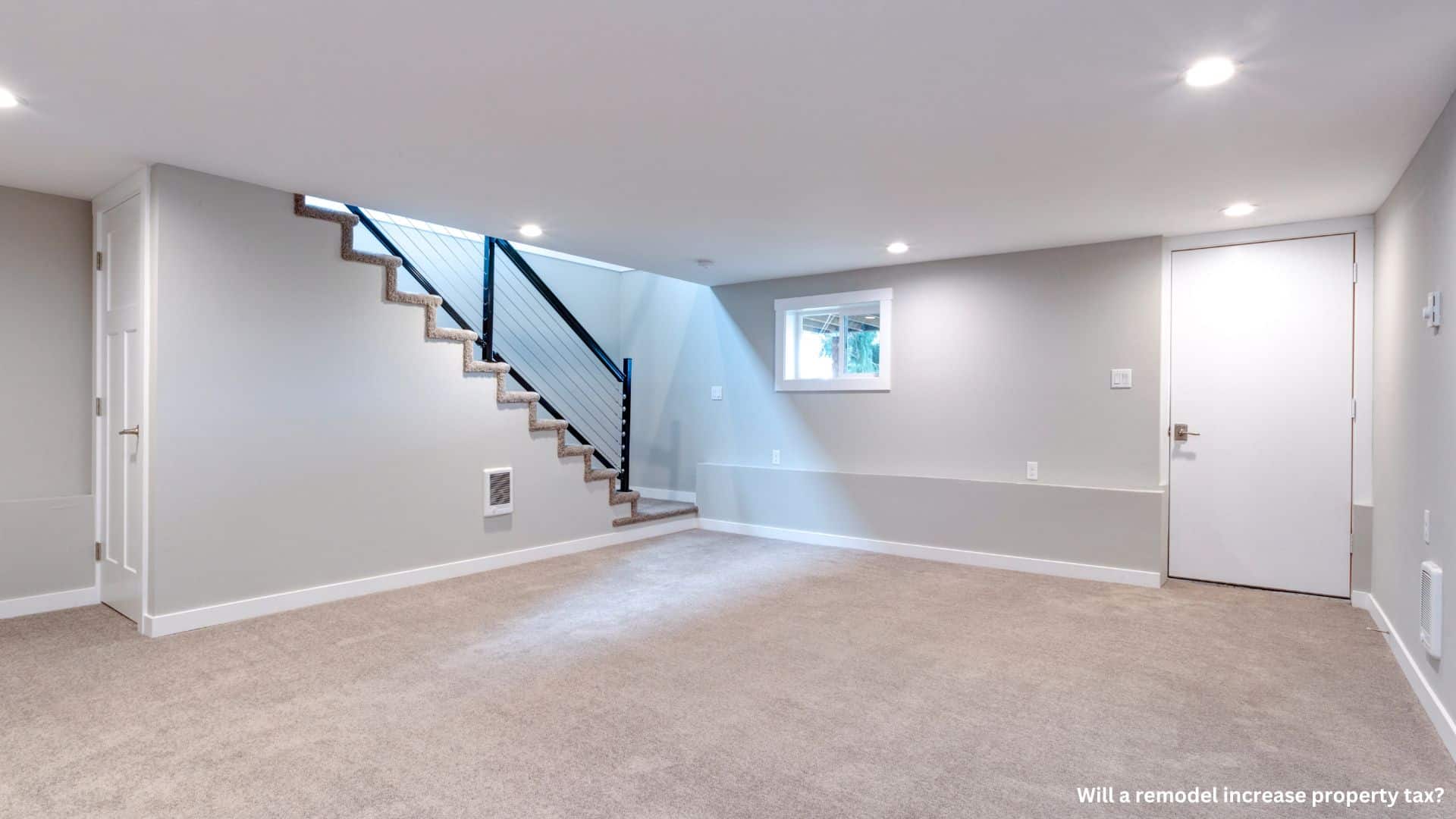
Converting a basement into a finished living space effectively increases the usable square footage of a home, which is a major factor in assessing property value. A basement conversion might involve adding insulation, drywall, flooring, and lighting to create a space that can function as an additional family room, bedroom, or entertainment area. This transformation can significantly enhance the overall utility and appeal of the property. When assessors see such substantial improvements, they often reassess the property at a higher value because it can better serve the needs of potential buyers or renters, leading to an increase in property taxes.
Home Additions
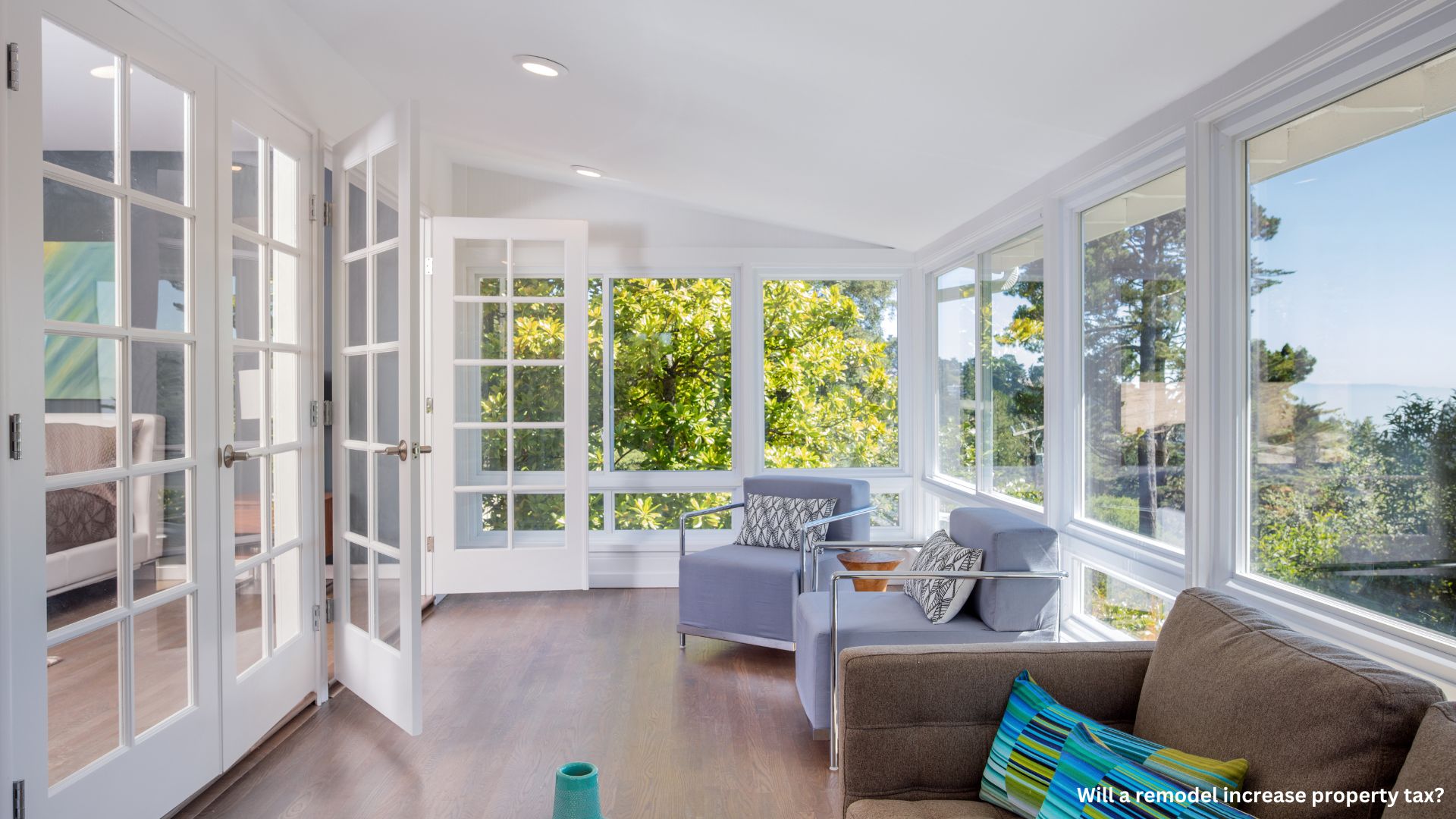
When you add new parts to your house, like an extra room, sunroom, or a bigger living area, it usually makes your home more valuable and could lead to a hike in your property taxes. This is because property taxes are based on how much your home is worth, and more space often means a higher value. If you’re thinking about making big additions, it’s smart to talk to local building and tax officials first. They can give you an idea of how much more you might have to pay in taxes after your home upgrades, helping you budget better for your project.
Navigating Property Tax Assessments
When planning significant home upgrades, it’s wise to have a chat with your local tax assessors both before and after the project. These discussions can clue you in on how your renovations might affect your property taxes. Tax assessors can explain the local tax rules and how they apply to your home’s new valuation after renovations. This proactive approach helps you understand potential tax changes and allows you to budget accordingly. Knowing these details in advance can help prevent surprises when your property tax bill arrives, and also ensures that all improvements are properly documented and assessed.
Frequently Asked Questions: Remodel Increase Property Tax
How do I find out if a specific home improvement will increase my property taxes?
You should contact your local tax assessor’s office. They can provide detailed information on what types of improvements typically trigger a reassessment in your area.
Are there any improvements that do not affect property taxes?
Yes, routine maintenance and minor cosmetic changes usually do not affect property taxes. This includes painting, minor landscaping, or replacing existing fixtures without upgrading.
Can I appeal a property tax increase?
Yes, if you believe your property was unfairly reassessed at a higher value following home improvements, you can appeal the decision with your local tax authority. It’s crucial to gather all relevant documentation and evidence of your property’s value before and after the improvements.
